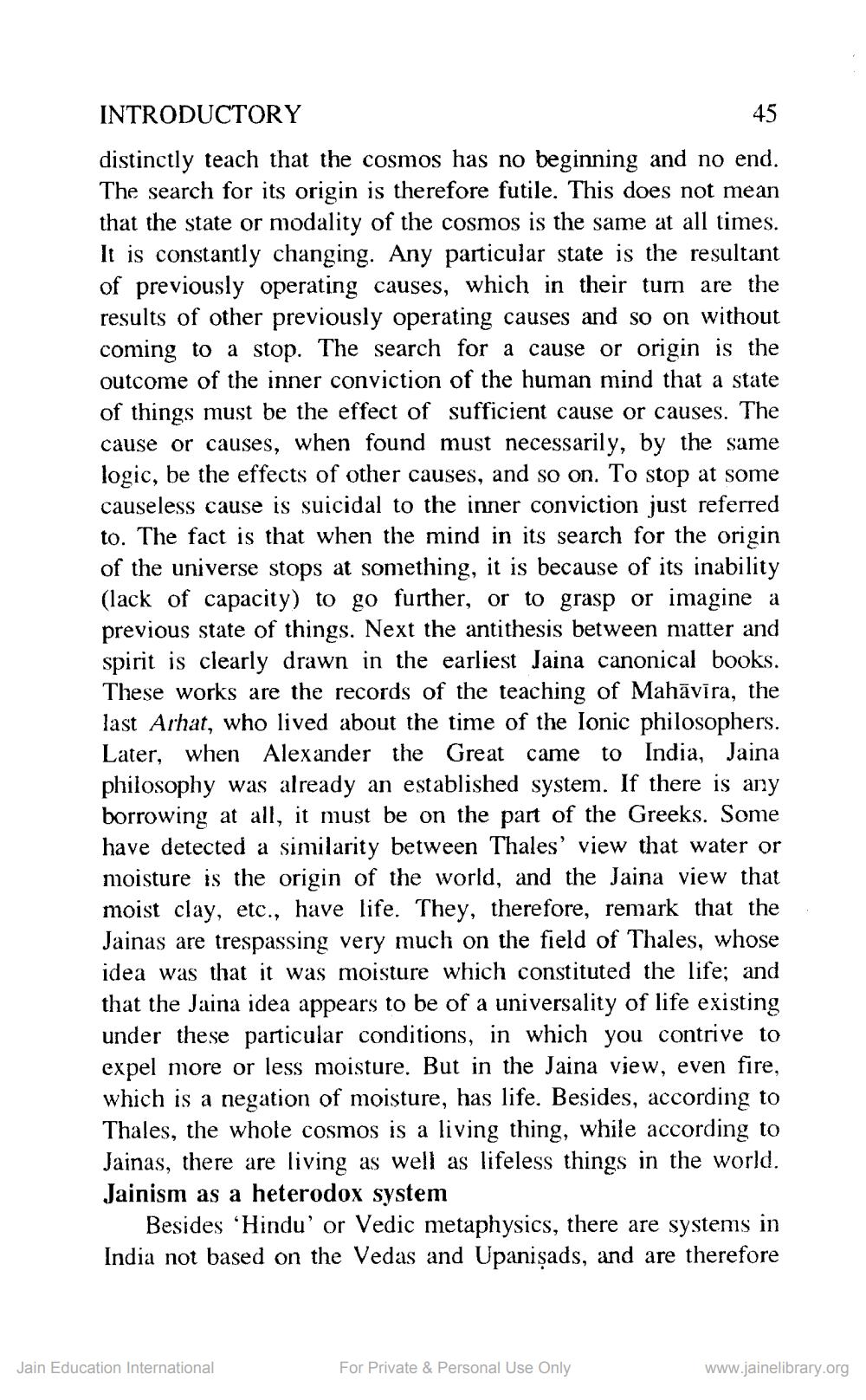________________
45
INTRODUCTORY distinctly teach that the cosmos has no beginning and no end. The search for its origin is therefore futile. This does not mean that the state or modality of the cosmos is the same at all times. It is constantly changing. Any particular state is the resultant of previously operating causes, which in their turn are the results of other previously operating causes and so on without coming to a stop. The search for a cause or origin is the outcome of the inner conviction of the human mind that a state of things must be the effect of sufficient cause or causes. The cause or causes, when found must necessarily, by the same logic, be the effects of other causes, and so on. To stop at some causeless cause is suicidal to the inner conviction just referred to. The fact is that when the mind in its search for the origin of the universe stops at something, it is because of its inability (lack of capacity) to go further, or to grasp or imagine a previous state of things. Next the antithesis between matte spirit is clearly drawn in the earliest Jaina canonical books. These works are the records of the teaching of Mahāvīra, the last Arhat, who lived about the time of the Ionic philosophers. Later, when Alexander the Great came to India, Jaina philosophy was already an established system. If there is any borrowing at all, it must be on the part of the Greeks. Some have detected a similarity between Thales' view that water or moisture is the origin of the world, and the Jaina view that moist clay, etc., have life. They, therefore, remark that the Jainas are trespassing very much on the field of Thales, whose idea was that it was moisture which constituted the life; and that the Jaina idea appears to be of a universality of life existing under these particular conditions, in which you contrive to expel more or less moisture. But in the Jaina view, even fire, which is a negation of moisture, has life. Besides, according to Thales, the whole cosmos is a living thing, while according to Jainas, there are living as well as lifeless things in the world. Jainism as a heterodox system
Besides 'Hindu' or Vedic metaphysics, there are systems in India not based on the Vedas and Upanişads, and are therefore
Jain Education International
For Private & Personal Use Only
www.jainelibrary.org




